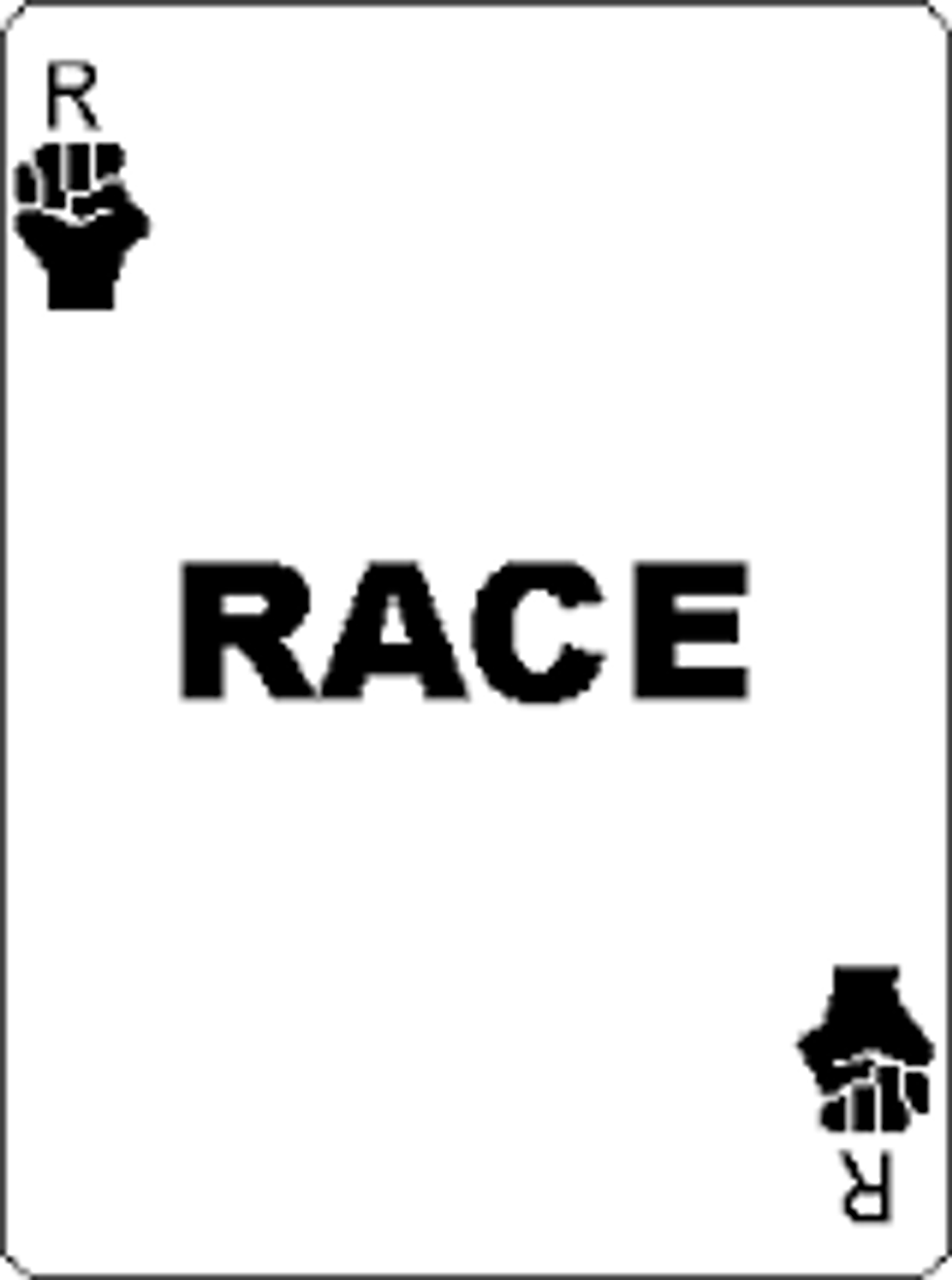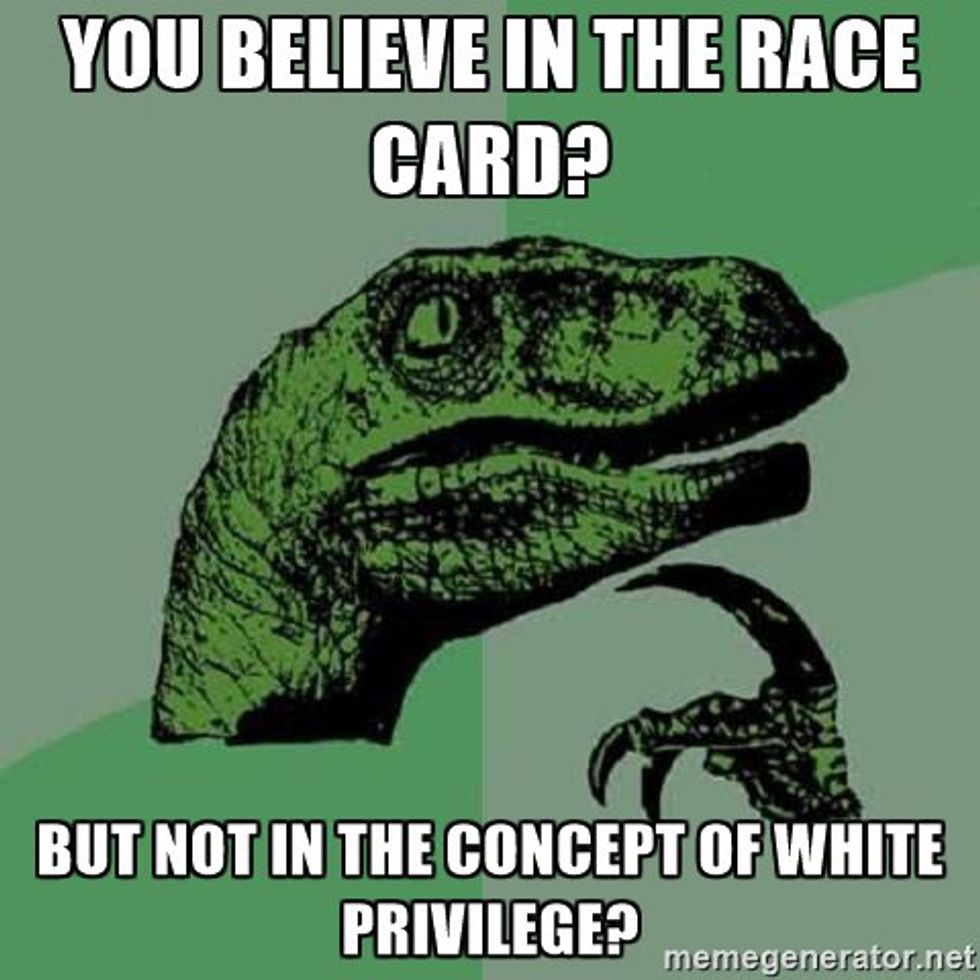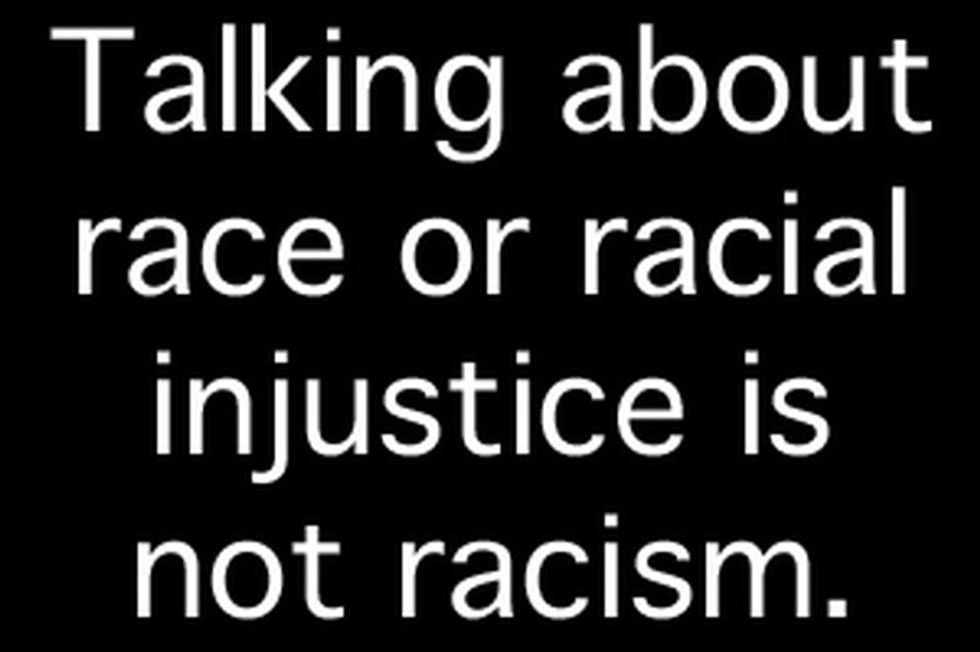Racial discussions have dominated public sphere in the news and on social media recently. Personally, I think they should have been more prominent sooner, but that's beside the point. One major statement I keep seeing from, mostly white, individuals is that bringing up racial issues or calling out instances of racism is "playing the race card." This is perhaps one of the least helpful and least productive responses that can be made when a group claims racism or oppression, and in fact it's this devaluing and denying of problems that leads to consequences such as riots and resentment.
Let's unpack the phrase, "playing the race card." First, it positions race as some sort of "token," something that can be used to gain an upper hand. This hasn't been true for minorities since the beginning, that they can use their race as some sort of valuable hand in the poker game of life. They have been enslaved, legally and then socially oppressed, and they experience racism every day in a world where they are "other." Though the law has removed a way to be upfront with discrimination and racism, and we have Affirmative Action (which is simply aiming to level the playing field, not give minorities an advantage as some people like to think), there is what is often called "subtle racism" today. That can be much harder to single out, but is very present and real to those groups which confront it in their daily interactions. I have already addressed some statistics associated with institutional racism and how it shows itself still in this society, but stats are only half of the story.
When we talk about racism, it is a very social and cultural concept. It involves people relating to the "other," or what they construct as "other." Therefore, to fully understand and recognize the presence of racism today, one would need to interact with affected groups, actively seek out information, listen to/ read about experiences or have encountered it themselves. For many white individuals, their privilege prevents them from seeing such issues, and therefore they are able to doubt their existence, significance in a larger context, and to lash out instead at the person pointing it out, telling them they are overreacting or looking for attention. Privilege does not mean people are given everything and don't work hard and have it easy, instead it means here that these people have the blessing of not having to consider how their skin color will affect how people see and treat them on a daily basis. White privilege varies when intersected with class and gender, as well as other identities, but a status as poor, for example, does not negate white privilege. Just as being wealthy and having rich privilege does not negate being a minority (Colin Kaepernick). Everyone's aspects of identity are at play at the same time, and they affect how one goes about life. It's unlikely that they can be separated out from experience. It's a privilege of those who do not experience the effects of generations of targeted racial, institutional mistreatment and abuse to say that a certain occurrence or incidence does not have anything to do with race. It is a privilege to see things as "color blind" and "not involving race." When there's people involved, particularly people of color, race is involved by virtue of them just being present. That is an effect of our still-segregated society today.
Because white individuals in general have this privilege, this leads to another part of the phrase, "race card." One concept I have encountered which explains why "race card" is almost always directed toward a minority as an accusation and not a white person is white purity. This is the notion that "white" is not a race. That it is somehow above race. That white people do not have a "race card" to play, mainly because this phrase was created by whites as backlash to racial social/ activist movements. One simple presentation of this concept in daily life, in our very language, are the phrases "white" and "non-white." People use these phrases to delineate between what is white and what is not white. The implication is that any drop of "color" contaminates whiteness and shoves a person into the "non-white" group. This might explain some of the reason why biracial individuals experience criticism from both races, particularly when they are partially white, and why individuals between cultures in the United States also experience conflict, tension and mistreatment.
Finally, the employment of this phrase has almost one essential purpose: to silence. This phrase is to minimize, deflect and redirect conversation about racial issues. It takes the attention away from the situation itself and points it instead toward the speaker themselves, trying to discredit them as over-dramatic, attention-seeking whiners. It is a personal attack of sorts that not only denies the issue, it denies the credibility and the grounds on which someone can call out racism. This is counterproductive, as it once again silences minorities as they have been for centuries, further incites resentment and anger toward the oppressing group, and upholds long-standing systematic racism. Not to mention that it is simply a shameful action to dictate to groups, who have issues you know absolutely nothing about and can't imagine being in their position, what is and is not problematic. Not only is it not something you have the ability and experience to decide, it may perhaps be extremely assumptive and arrogant to believe your experience is universal. To believe that because you don't see something as a racial issue and you don't see or experience racism, or that no one has "proven" it to you, that it somehow then doesn't exist. Or, even more absurd, that pointing out racism somehow makes the speaker racist against whites. This is essentially saying any labeling of something as "racist," is an attack on all whites, which basically admits whites are the main ones, and have been the main ones, exhibiting this racism.
Maybe, just maybe, "stop playing the race card" is a phrase that should be phased out of this discourse on race, racial issues and racism. It seems not to generate discussion or solutions in the least, but instead it serves as a verbal roadblock which further frustrates and oppresses the groups trying to call attention to important issues within this country and society. It ends discussion and pushes the problem aside. Though the United States has come a long way, there is still much work to be done. It will be much easier if everyone works together.
























